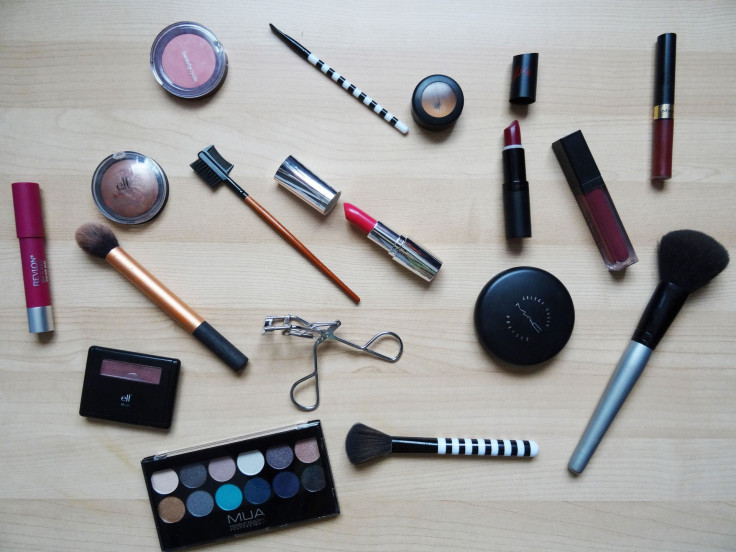A latest study has revealed that popular cosmetics sold in the United States and Canada likely contain substances that can cause cancer following its long-term use.
According to the new study released Tuesday, by the University of Notre Dame, scientists tested 231 beauty products including foundations, concealers, eyeshadows, eyebrow products as well as various lip products, and found that they contain high levels of fluorine, a potentially toxic chemical that can cause cancer and other serious health conditions.
"Per- and polyfluoroalkyl substances (PFAS), a highly persistent and potentially toxic class of chemicals, are added to cosmetics to increase their durability and water resistance," according to the study published in the journal of Environmental Science and Technology Letters.
Researchers found that 47 percent of mascaras, 48 percent of lip products, and 56 percent of foundations and eye products that were tested contained alarming levels of PFA’s.
"These results are particularly concerning when you consider the risk of exposure to the consumer combined with the size and scale of a multibillion-dollar industry that provides these products to millions of consumers daily," the New York Post quoted researcher Graham Peaslee, professor of physics at Notre Dame, as saying.
"There’s the individual risk — these are products that are applied around the eyes and mouth with the potential for absorption through the skin or at the tear duct, as well as possible inhalation or ingestion."
"PFAS is a persistent chemical — when it gets into the bloodstream, it stays there and accumulates. There’s also the additional risk of environmental contamination associated with the manufacture and disposal of these products, which could affect many more people," Peaslee warns.
"This is a red flag," he said. "Our measurements indicate widespread use of PFAS in these products — but it’s important to note that the full extent of use of fluorinated chemicals in cosmetics is hard to estimate due to lack of strict labeling requirements in both countries."
Peaslee’s studies have helped reduce the use of these deadly substances in both consumer and industrial products. In 2017, his study revealed that wrappers used by fast-food chains contained these "forever chemicals". This raised concerns, forcing the outlets to switch to alternative options.

© 2025 Latin Times. All rights reserved. Do not reproduce without permission.




